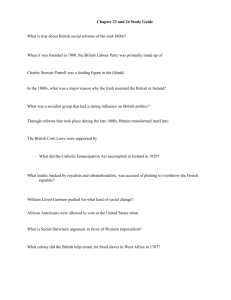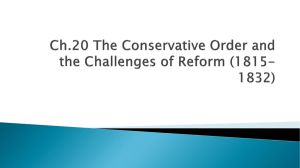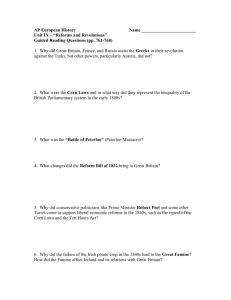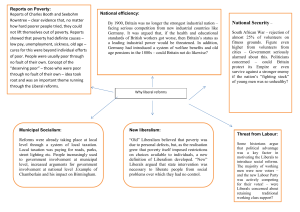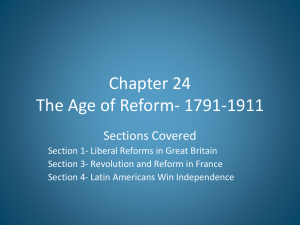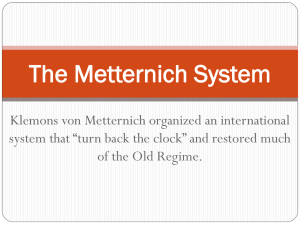notes
advertisement
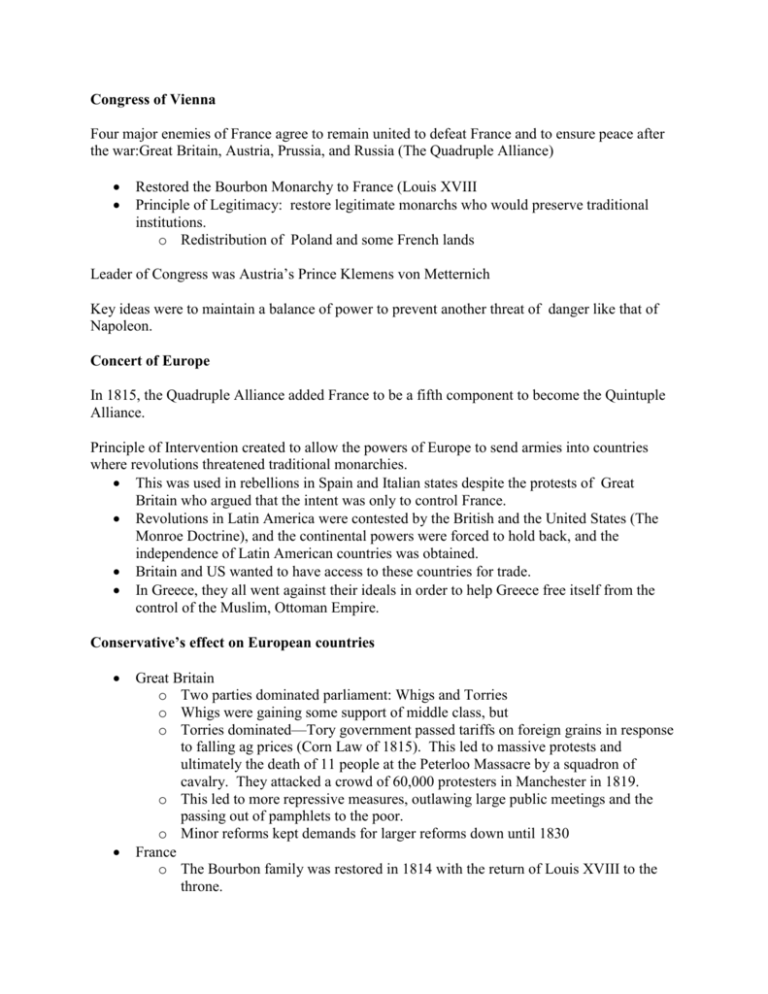
Congress of Vienna Four major enemies of France agree to remain united to defeat France and to ensure peace after the war:Great Britain, Austria, Prussia, and Russia (The Quadruple Alliance) Restored the Bourbon Monarchy to France (Louis XVIII Principle of Legitimacy: restore legitimate monarchs who would preserve traditional institutions. o Redistribution of Poland and some French lands Leader of Congress was Austria’s Prince Klemens von Metternich Key ideas were to maintain a balance of power to prevent another threat of danger like that of Napoleon. Concert of Europe In 1815, the Quadruple Alliance added France to be a fifth component to become the Quintuple Alliance. Principle of Intervention created to allow the powers of Europe to send armies into countries where revolutions threatened traditional monarchies. This was used in rebellions in Spain and Italian states despite the protests of Great Britain who argued that the intent was only to control France. Revolutions in Latin America were contested by the British and the United States (The Monroe Doctrine), and the continental powers were forced to hold back, and the independence of Latin American countries was obtained. Britain and US wanted to have access to these countries for trade. In Greece, they all went against their ideals in order to help Greece free itself from the control of the Muslim, Ottoman Empire. Conservative’s effect on European countries Great Britain o Two parties dominated parliament: Whigs and Torries o Whigs were gaining some support of middle class, but o Torries dominated—Tory government passed tariffs on foreign grains in response to falling ag prices (Corn Law of 1815). This led to massive protests and ultimately the death of 11 people at the Peterloo Massacre by a squadron of cavalry. They attacked a crowd of 60,000 protesters in Manchester in 1819. o This led to more repressive measures, outlawing large public meetings and the passing out of pamphlets to the poor. o Minor reforms kept demands for larger reforms down until 1830 France o The Bourbon family was restored in 1814 with the return of Louis XVIII to the throne. o He accepted the Napoleonic Code, and its recognition of equality before the law, property rights of purchased confiscated lands, and a bicameral legislature (Chamber of Peers—chosen by the king and the Chamber of Deputies—chosen by a wealthy few) o He upset liberals seeking greater reforms and ultra royalists that wished to return to the privileges lifestyles and the restoration of the Catholic Church. o XVIII was replaced by his brother, Charles X. He favored the ultra royalists desires, and went through a back and forth struggle. o By 1830, France was on the brink of a second revolution. Italian States and Spain o Congress of Vienna split Italy into 9 states. Much of it was under Austrian control. o Most leaders were very eager to quell any desires by groups that had nationalist desires. o Secret societies known as the Carbonari continued to conspire and plan for revolution o In Spain, a Bourbon dynasty was restored under Ferdinand VII in 1814. He had agreed to observe the liberal constitution, but reneged on his promises. This led to a revolt that was stopped when France intervened in 1820. Central Europe o Rebellious groups were held in check by Metternich and his spies. o Some reforms took place in Prussia under King Frederick William III, but did not include a legislative assembly or a representative gov’t. o In the universities, students and professors organized Burschenshaften, which were societies intent on German unity. These alarmed Metternich, and they were placed under close supervision. o In Austria, multiple nationalities were held together by the Hapsburg dynasty and the Catholic Church. Hungarian nationalists posed a threat to the Austrian Empire. Russia o Overwhelmingly rural, agricultural, and autocratic. Tsar, Alexander I became very reactionary after the invasions of Napoleon. o Opposition to Alexander I came from a group called the Northern Union o When Alexander died in 1825, he was replaced by his brother Nicholas I. During the transfer of power, the Northern Union rebelled—known as the Decembrist Revolt. o Nicholas brutally crushed the rebellion, and strengthened the secret police force, and tightly controlled much of Russian life. o Nicholas was very willing to help stop rebellions anywhere in Europe.
